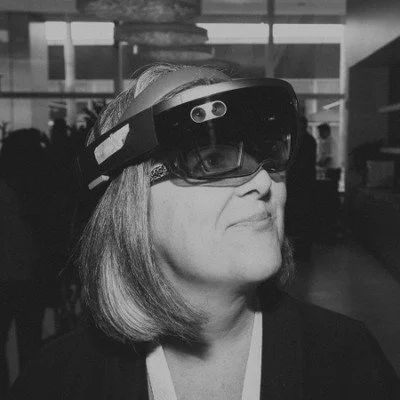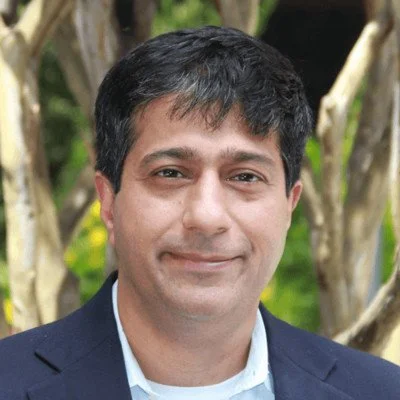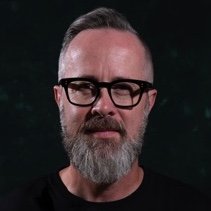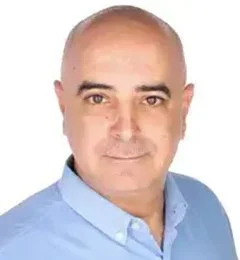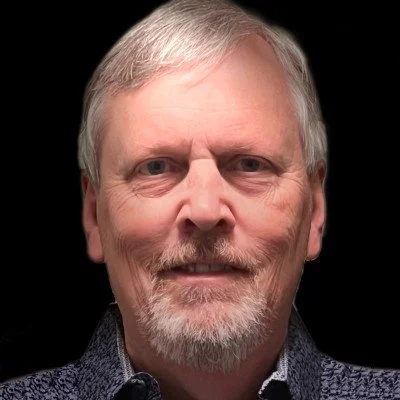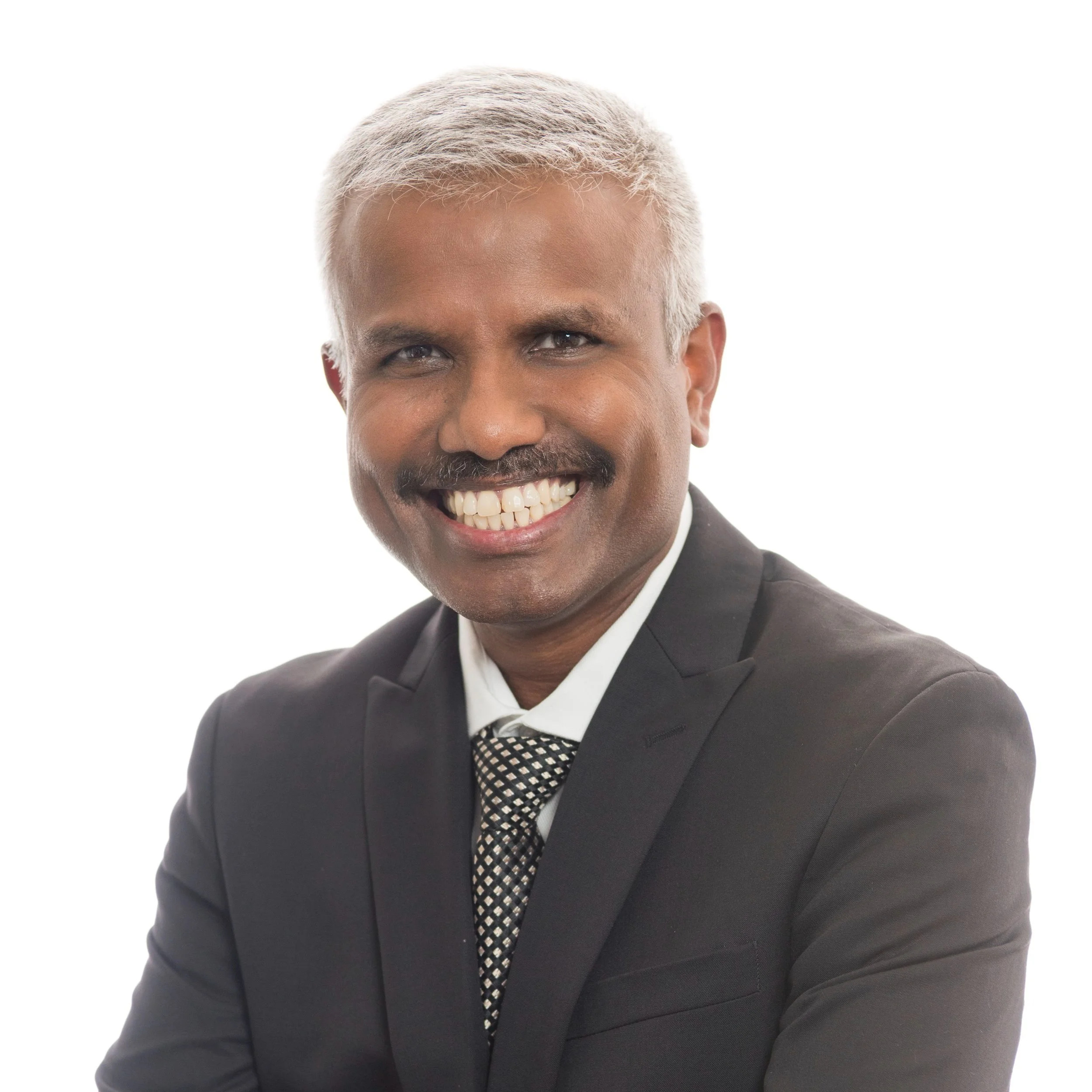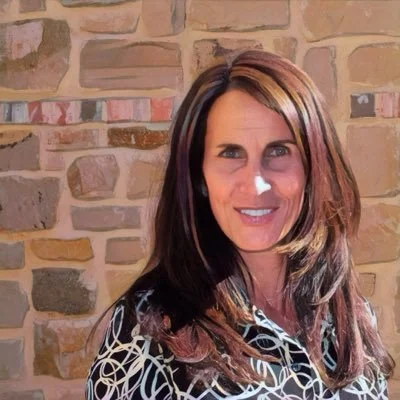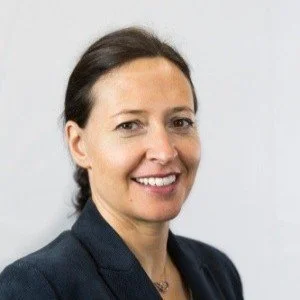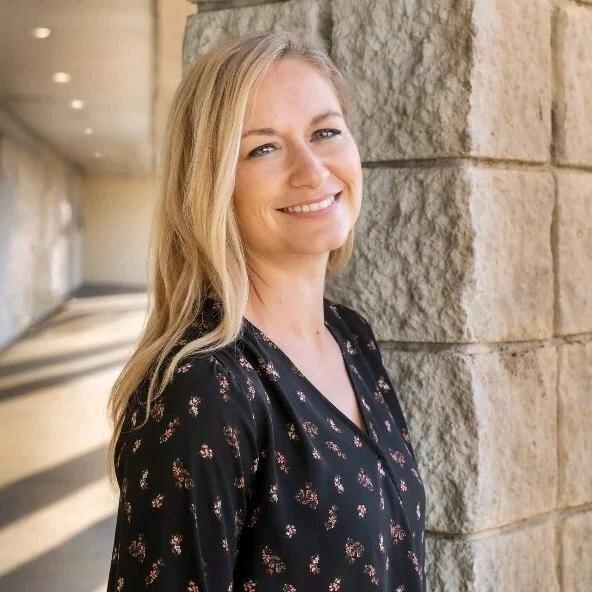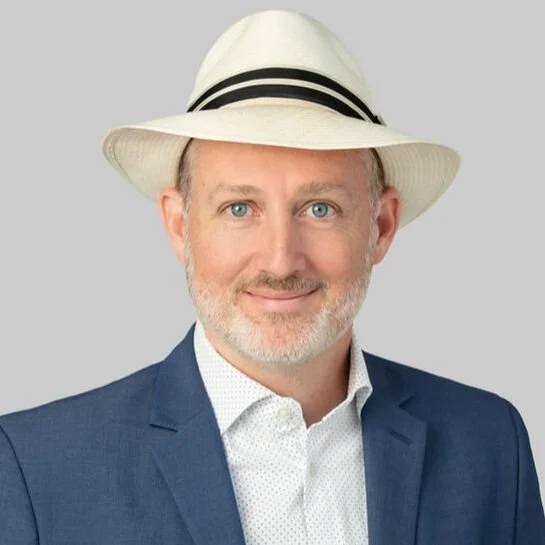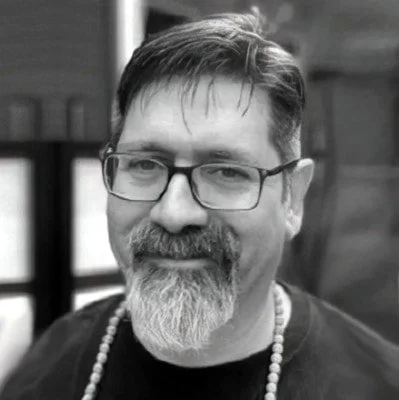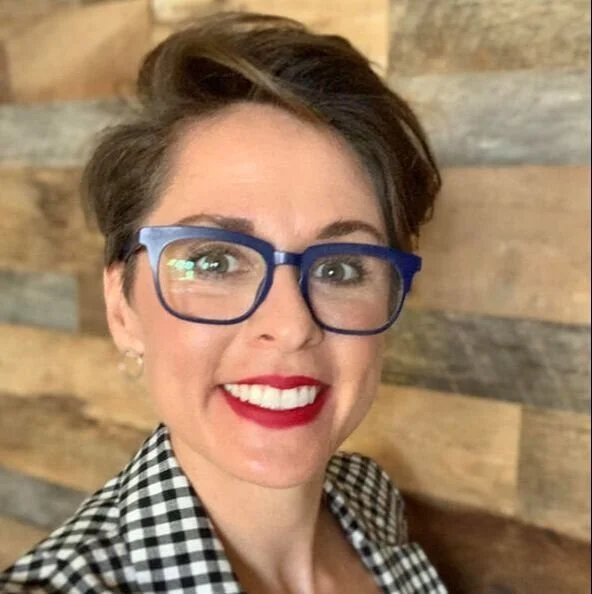Events
The Austin Forum hosts three types of events each month, an in-person presentation + networking event, an online discussion event, and an in-person meetup. Anyone can join these events to interact, share ideas, and collaborate with speakers and fellow attendees.

Best LLM & GenAI Pro Tips, Tricks, and Hacks
Event Summary
Show us your skills! Share your knowledge with others!
Chatbots, LLMs, and generative AI (GenAI) tools in general are adding features rapidly and have become powerful tools capable of teaching, translating, summarizing, analyzing, and even reasoning. LLMs in 2025 are more than party tricks—these are tools that can change your life if you learn how to use them powerfully. Join us for a meetup to share your expertise, demos, and tips to help others increase their effective usage of LLMs and/or watch and listen to others share their pro tips! Bring your devices to show how to get the most out of these tools and try new things out. You’ll become a powerful (or, more powerful) LLM user by 8 pm!
Host
Jay Boisseau, Executive Director, Austin Forum on Technology & Society and CEO, Vizias
Jay Boisseau is an experienced, recognized leader and strategist in advanced computing technologies, with over 25 years in the field. Jay is the executive director and founder of The Austin Forum on Technology & Society, which he created in 2006 and is the leading monthly technology outreach and engagement event in Austin--and now attracts national and international attendees online. The Austin Forum is one of the pillars of the Austin tech scene, providing connections to information, ideas, collaborations, and community overall. In addition, Jay is CEO, co-founder (June 2014), and a partner in Vizias, a small team of passionate professionals with expertise in high-performance computing (HPC), artificial intelligence (AI), technology community building, and technology outreach & event planning. Vizias staff lead, execute, and support the Austin Forum through Vizias Research, Education, and Outreach, a non-profit dedicated to using technology for positive social impact. Jay has held previous leadership positions at Dell Technologies, the Texas Advanced Computing Center (TACC) at The University of Texas at Austin, the San Diego Supercomputer Center and the Arctic Region Supercomputing Center. He received his doctorate in astronomy from UT Austin, and his undergraduate degree in astronomy and physics from the University of Virginia. For Jay's full professional bio, visit here.
Attendance Instructions
All participants must register for this event via Eventbrite. This will be an in-person event held at Capital Factory in the ACL Room, 16th Floor.
Parking information can be found here.

SXSW 2025: Austin Forum Recap - Insights & Innovations
Event Summary
Join us for an exclusive, insider's look at the most exciting and impactful moments from SXSW 2025!
SXSW President Hugh Forrest will moderate a dynamic session where Austin Forum community members share their key takeaways, top highlights, and actionable recommendations gleaned from the diverse range of panels, presentations, and events. Attendees will deliver concise, engaging presentations summarizing the most innovative ideas, emerging trends, and thought-provoking discussions they experienced at SXSW. Following the presentations, attendees will have the opportunity to network, ask questions, and delve deeper into the topics covered, maximizing the value and impact of the SXSW experience for everyone. Don't miss this chance to connect with fellow SXSW attendees, gain valuable insights, and explore the future of technology and innovation!
Host
Hugh Forrest, President, SXSW
Hugh Forrest oversees content for the SXSW Conference, as well as the Music Festival, Film Festival and EDU aspects of the program. Hugh was named “Austinite of the Year” in 2012 by the Austin Chamber of Commerce and in 2014, he and other SXSW Directors were named Austin Entrepreneurs of the Year by Ernst & Young. He recently received an honorary doctorate of humane letters from Kenyon College, his alma mater.
Beyond SXSW, he has served on the National Advisory Board for the Poynter Institute in St. Petersburg, Florida. He is part of the Board of Directors for Austin Habitat for Humanity and also serves on the Board of Directors for the Austin-based accessibility company Knowbility. Before joining the SXSW team, he founded The Austin Challenger and wrote for several other newspapers and publications.
Attendance Instructions
All participants must register for this event via Eventbrite. This will be an in-person event held at Capital Factory in the Captain America room.
Parking information can be found here.

Immersive Tech Meetup—and Demos!
Event Summary
Immersive technologies are reshaping how we communicate, create, and solve problems, leveraging the full power of human sensory and spatial reasoning. Advances in display technology, AI, UX, and human-computer interaction (HCI) are converging to put augmented reality (AR), virtual reality (VR), mixed reality (MR), artificial intelligence (AI) and Internet of things (IoT) into the hands of many. These tools will soon revolutionize not only entertainment but also industries like education, design, training, and simulation.
Join us at Texas Immersive Institute to explore how emerging immersive technologies are not just enhancing our sensory experiences, but also unlocking new ways to engage audiences, tell stories, and design innovative solutions. Led by Professor Erin Reilly, the Texas Immersive team will guide you through hands-on demos of cutting-edge technologies that merge the physical and digital worlds, creating interactive, experiential environments. Talk about the possibilities for new immersive technologies presented by these technologies and what innovations are now possible in different fields. And, maybe, come up with an idea that Texas Immersive can help you translate into a great new research, business, or social impact application using these technologies!
Attendance Instructions
Join us in-person at the Texas Immersive Institute at the University of Texas at Austin. Location details below.
2504 Whitis Ave, Austin, TX 78705
Jesse H. Jones Communication Center
Building A - 5th floor (CMA 5.102)
Street parking available on Dean Keeton and Guadalupe St. or the San Antonio Garage at 2420 San Antonio St, Austin, TX 78705
Moderator
Erin Reilly, Professor of Practice, Stan Richards School of Advertising & Public Relations, Texas Immersive Institute
Erin Reilly is a creator, educator, and strategist. Her career spans more than 20 years, during which she has invented new approaches, products, services, and experiences for storytelling and audience engagement through immersive technology. Erin currently serves as professor of practice in the Stan Richards School of Advertising and Public Relations, as well as founding director of Texas Immersive Institute, the interactive and immersive media hub at the University of Texas at Austin, focused on research, projects, and learning the future of media. Erin is a frequent lecturer at universities and industry conferences throughout the world, including TedX and South by Southwest. She is an executive committee board member of the Infinity Festival, a member of the Academy of Television Arts & Sciences Interactive Media Peer Group, previously served as the board president of National Association for Media Literacy Education, and serves on advisory boards such as SXSW Pitch and PBS children's shows “Hero Elementary” and Emmy-award winning, “Sci Girls.”

Introduction to Programming Quantum Computers
Event Summary
Quantum computing promises transformational capabilities for developing new materials and pharmaceuticals, finding better answers to the most complex optimization problems in logistics and finance, enabling RSA key decryption, accelerating search algorithms for very large data, and more. However, quantum computers are currently still small, error-prone, and fragile. So, why should you learn about quantum computing, algorithms, and programming now? Because viable, advantageous quantum computing systems are imminent—potentially just a few years away—and the evaluation and learning curve should be started now if you have problems with new ideas for which classical computing has constraints and you want a competitive advantage. Also, quantum computing-inspired algorithms are already starting to have an impact on how we use classical computers!
So, join us for an overview of:
How quantum computers work
How they are built and what constraints we must overcome
How they are programmed, and how this compares to programming classical computers including powerful HPC systems
Examples of algorithms and problems for which QC will greatly accelerate new, better solutions
Types of problems for which your company or organization may need quantum computing in the years ahead to achieve discovery, innovation, and competitive advantage
Real hands-on programming on a working quantum computing system!
Instructors
Jay Boisseau, Executive Director, Austin Forum on Technology & Society and CEO, Vizias
Jay Boisseau is an experienced, recognized leader and strategist in advanced computing technologies, with over 25 years in the field. Jay is the executive director and founder of The Austin Forum on Technology & Society, which he created in 2006 and is the leading monthly technology outreach and engagement event in Austin--and now attracts national and international attendees online. The Austin Forum is one of the pillars of the Austin tech scene, providing connections to information, ideas, collaborations, and community overall. In addition, Jay is CEO, co-founder (June 2014), and a partner in Vizias, a small team of passionate professionals with expertise in high-performance computing (HPC), artificial intelligence (AI), technology community building, and technology outreach & event planning. Vizias staff lead, execute, and support the Austin Forum through Vizias Research, Education, and Outreach, a non-profit dedicated to using technology for positive social impact. Jay has held previous leadership positions at Dell Technologies, the Texas Advanced Computing Center (TACC) at The University of Texas at Austin, the San Diego Supercomputer Center and the Arctic Region Supercomputing Center. He received his doctorate in astronomy from UT Austin, and his undergraduate degree in astronomy and physics from the University of Virginia. For Jay's full professional bio, visit here.
Sumit Puri, IBM Quantum Ambassador, IBM
Sumit Puri is an IBM Quantum Ambassador and Qiskit Advocate with a passion for quantum computing. He has actively contributed to the open-source Qiskit project, helping to advance the field of quantum programming and computation. As a recognized leader in the quantum community, Sumit is dedicated to fostering collaboration and innovation in quantum technologies.
Attendance Instructions
All participants must register for this event via Ticketbud. This will be an in-person event held at Capital Factory in the Captain America Room.
Parking information can be found here.

Quantum Computing Meetup
Event Summary
Quantum computing promises the potential to solve tremendously challenging real-world problems that are unaddressable by traditional, or classical, computing machines today, tomorrow, and maybe forever. However, while the principles of quantum mechanics are well understood, building reliable, large-scale quantum computing presents tremendous engineering challenges. Furthermore, discovering optimal quantum computing algorithms and developing effective quantum computing applications is also important if quantum supremacy--or quantum advantage, or quantum value--compared to classical computing is to be achieved. Still, while we're in the early days of quantum computing, there are exciting developments and tantalizing results almost weekly that provide reasons for great optimism (and, unfortunately, hype) that quantum computing systems from one or more vendors will achieve quantum value on useful problems in the very new future--and that more widespread quantum advantage may be achievable in years, not decades. So, the excitement is high and the time is now to learn about this transformational technology and understand how you can best evaluate it for your business, or contribute to its advancement and adoption.
Please join us as quantum computing professionals from several quantum computing companies and labs explain their companies' approaches, results, and directions, and which domains, verticals, and companies/organizations are aggressively pursuing quantum computing for new solutions. Then, mix and mingle with quantum computing experts and enthusiasts to learn more and make relationships that will help you and/or your company track this technology and be among the first to use it for innovation and competitive advantages.
Attendance Instructions
This will be an in-person event held at Capital Factory in the Captain America room, Floor 8.
Parking information can be found here.
Moderators
Scott Aaronson, Chair of Computer Science, Schlumberger
Scott Aaronson is Schlumberger Chair of Computer Science at the University of Texas at Austin, and founding director of its Quantum Information Center. He received his bachelor's from Cornell University and his PhD from UC Berkeley. Before coming to UT Austin, he spent nine years as a professor in Electrical Engineering and Computer Science at MIT. Aaronson's research in theoretical computer science has focused mainly on the capabilities and limits of quantum computers. His first book, Quantum Computing Since Democritus, was published in 2013 by Cambridge University Press. He received the National Science Foundation’s Alan T. Waterman Award, the United States PECASE Award, the Tomassoni-Chisesi Prize in Physics, and the ACM Prize in Computing, and is a Fellow of the ACM and the AAAS.
Kartik Dixit, D-Wave Systems
Kartik Dixit is a seasoned professional currently working within the professional services organization at D-Wave, a leading Canadian quantum computing company. At D-Wave, he contributes to delivering advanced quantum computing solutions that address complex problems across various industries. D-Wave is recognized as the world’s first company to commercialize quantum computers that harness quantum effects.
Before joining D-Wave, Kartik successfully built and divested two consulting firms, each with over 100 consultants, specializing in ERP and GIS solutions for the Oil & Gas sector, State & Local Governments, and mid-sized enterprises. He also served as Director of Operations at the Harris County Flood Control District, where he oversaw all support functions for the organization. Kartik holds a Master of Science in Computer Science. In his spare time, he channels his passion for sustainability and innovation into building energy-efficient custom homes in Houston's inner loop.
Jenn Clemente, Senior Communications Manager, D-Wave Quantum
As D-Wave Quantum’s senior communications manager, Jenn bring decades of expertise in executive communications, event communications, and customer storytelling with a focus on the business value of cloud, AI, and quantum computing for business. Her career is distinguished by a deep proficiency in leveraging AI for communications and marketing, honed through prior roles in content and communications at both VMware and IBM. Before transitioning to the corporate world, she was a foreign correspondent in Eastern Europe and the Balkans during the 1990s, tracking the impact of technology on a region steeped in transition — growing conversant in a variety of Slavic and Finno-Ugric languages. In her spare time, she is concerned with all facets of spirituality and is working on an M.A. in consciousness studies.
Thien-An Nguyen, CTO, ORCA Computing
As Chief Technology Officer (CTO) at ORCA Computing, Thien-An Nguyen spearheads the company’s technological advancements and translates innovative ideas into tangible products. With a robust background encompassing both software and hardware development, Thien-An leverages a couple decades of experience to drive the development of cutting-edge technologies. His expertise lies in shepherding concepts from inception through the phases of prototyping and into full-fledged product realization. Prior to his role at ORCA Computing, Thien-An served as the Vice President of R&D Strategy at GXC, where he led the photonics division in delivering solutions across diverse sectors including AI accelerators, telecommunications, biomedical sensors, electronic warfare, signals intelligence, and spectroscopy. His passion for fusing diverse research disciplines fuels his commitment to delivering impactful quantum-enhanced capabilities tailored to address multifaceted challenges across numerous customer industries.
William "whurley" Hurley, Founder and CEO, Strangeworks
whurley is founder and CEO of Strangeworks, an Eisenhower Fellow, a Senior Member of the IEEE, founder of the Quantum Computing Standards Workgroup at the IEEE, the first Ambassador to CERN and Society, and the co-author of "Quantum Computing For Babies” and the upcoming “Quantum Computing for Dummies” (available for pre-order now). Prior to starting Strangeworks he was a Managing Director at Goldman Sachs [NYSE: GS]. He came to Goldman Sachs via the acquisition of his second startup, Honest Dollar. Prior to Honest Dollar whurley founded Chaotic Moon Studios which was acquired by Accenture [NYSE: ACN].
Philip Farah, VP Sales, Industries and Strategic Relationships, IonQ
As VP Sales, Industries and Strategic Partnerships at IonQ, Philip Farah is responsible for developing IonQ’s strategic partnerships with a focus on revenue growth and on strengthening IonQ’s position at the center of the Quantum Computing Ecosystem. Prior to joining IonQ, Philip ran Services and Engineering Sales, Global Accounts for Worldwide Technology, a leading systems integrator and IT infrastructure value-added reseller. Philip started his career in the US as a consultant with McKinsey & Co, and has held several leadership roles at Gartner (Senior Managing Partner, Financial Services), Cisco Systems (head of Global FSI Innovation strategy practice), and Capital One Financial (head of Recoveries Analytics).
Wil Oxford, Founder and CEO, Anametric
Wil is founder and CEO of Anametric, Inc. Based out of Austin TX, Anametric has been building Quantum Photonic chips for the cybersecurity market for the last 6 years and their chips are a key part of Leidos’ DARPA QuANET program effort. In addition to Leidos, Anametric also works closely with teams from Southern Methodist University (Dallas TX), the Air Force Research Lab (Rome NY) and the Army Research Lab (Adelphi MD).
Nash Palaniswamy, Chief Commercial Officer, Quantinuum
As Chief Commercial Officer at Quantinuum, Nash Palaniswamy is responsible for sales, marketing and delivering revenue. He was previously responsible for delivering revenue at Intel's High-Performance Computing and Graphics, and Datacentre and AI groups, and led the task-force that delivered the "heterogenous product roadmap", giving him a highly relevant interest in the enterprise application of hybrid quantum-classical computing. Throughout his career, Nash has held various leadership, strategic and engineering roles and today indulges his passion in artificial intelligence by advising and mentoring a number of small startups. Nash holds three patents and was honored for his contribution to the #1 system in the Top 500 list of the world's fastest supercomputers. He earned his B.S. in Electronics and Communications Engineering from Anna University (India) and holds a Ph.D. and M.S. from the University of Cincinnati in Electrical and Computer Engineering (go Bearcats!).
Thierry Pellegrino, Global Head of Advanced Computing, AWS
Thierry Pellegrino is the Global head of Advanced Computing at AWS, in this role he oversees HPC, Domain specific ML, IOT and Quantum for the company. In his last role in the industry he was the Senior Vice President and President of Intelligent Platform Solutions at SGH (division which includes Penguin Solutions and Stratus). Prior to joining SGH, he spent over 20 years with Dell Technologies where he was the Head of the HPC and AI business. Thierry held multiple leadership roles in his career from engineering, strategy, M&A, and business leadership and has had the privilege to sit on the board of GRC and Penn State’s ICDS.
Sumit Puri, IBM Quantum Ambassador, IBM
Sumit Puri is an IBM Quantum Ambassador and Qiskit Advocate with a passion for quantum computing. He has actively contributed to the open-source Qiskit project, helping to advance the field of quantum programming and computation. As a recognized leader in the quantum community, Sumit is dedicated to fostering collaboration and innovation in quantum technologies.

Introduction to Quantum Computing
Event Summary
Quantum computing is a new kind of computing that leverages the properties of subatomic particles—quantum physics—to enable potentially tremendous computational power. While we have learned to build very powerful ‘classical’ computing systems by harnessing the properties of electrons and semiconductor materials, quantum computing systems are quite different, and ‘weird,’ because they are based on non-classical physics including superposition and entanglement of these subatomic particles. If this seems confusing, remember that most people don’t know how classical computers work either—and yet we all use them every day. In this extended lecture, we will cover how classical computers work, provide an overview of quantum physics, and then explain how quantum computers work and why they are so potentially powerful. We will then discuss the kinds of problems that require this kind of computational power—including some that will likely never be solvable with classical computers—and share what industries and companies are investing in this technology *now* to ensure they are leaders in innovation in the coming years. We will also talk about the quantum cryptography problem and solutions, the national interests in global competition and the market, and the timeline—as best we know it now!
So, if you’re quantum curious and/or want to understand whether your company should start paying attention now, join us for this extended lecture on quantum computing! You may also consider reading “Quantum Computing For Dummies” in advance, or (for the bold/mathematically skilled, “Dancing with Qubits” (though we will not dive that far into the mathematics, and none is required to get most of the benefits of this lecture.)
(This is an updated version of an extended overview talk given by Jay Boisseau in January 2024, and will be followed by a class on programming quantum computers in October 2024.)
Presenter
Jay Boisseau, Executive Director, Austin Forum on Technology & Society and CEO, Vizias
Jay Boisseau is an experienced, recognized leader and strategist in advanced computing technologies, with over 25 years in the field. Jay is the executive director and founder of The Austin Forum on Technology & Society, which he created in 2006 and is the leading monthly technology outreach and engagement event in Austin--and now attracts national and international attendees online. The Austin Forum is one of the pillars of the Austin tech scene, providing connections to information, ideas, collaborations, and community overall. In addition, Jay is CEO, co-founder (June 2014), and a partner in Vizias, a small team of passionate professionals with expertise in high-performance computing (HPC), artificial intelligence (AI), technology community building, and technology outreach & event planning. Vizias staff lead, execute, and support the Austin Forum through Vizias Research, Education, and Outreach, a non-profit dedicated to using technology for positive social impact. Jay has held previous leadership positions at Dell Technologies, the Texas Advanced Computing Center (TACC) at The University of Texas at Austin, the San Diego Supercomputer Center and the Arctic Region Supercomputing Center. He received his doctorate in astronomy from UT Austin, and his undergraduate degree in astronomy and physics from the University of Virginia. For Jay's full professional bio, visit here.

Sustainability & Climate Tech Meetup
Agenda
6:00 - 7:30 p.m. Discussion
Event Summary
Increased usage of limited resources of carbon-based fuels are creating growing environmental and societal challenges around the world. Join us for a meetup for people working or interested in sustainability and climate technologies. This meetup is open to all and will have sustainable and climate tech professionals serving as facilitators to encourage introductions and conversations, and to summarize recommendations and action items discussed throughout the evening.
Attendance Instructions
Join us in person at the St. Edwards University Library.
Parking Information
Park in Lot F or C (both are next to the library).
Use this link for parking validation.
Enter code: Meetup
Once you have filled out the information and clicked “Start” you will receive confirmation that you have registered for event parking.
Vehicle registration for this event allows parking in Faculty (black), Standard (green), and Economy (yellow).
PANELISTS
Patricia Baumhart, Intelligent Infrastructure Economic Zones Strategist, Autonomy Institute
Patricia Baumhart is an Intelligent Infrastructure Economic Zone Strategist focused on emerging tech, Patricia served on leadership teams at SGI, Accenture and PwC and helps lead efforts in Intelligent Infrastructure for autonomous and AI systems. Patricia will speak on how new approaches in leveraging AI, technology and Intelligent Infrastructure can sustainably build stronger and more connected communities.
Savannah Bush, Strategic Partnerships Associate, Climeworks
Savannah Bush is a strategic partnerships associate at Climeworks where she supports the firm’s commercial growth, scoping, and research to facilitate rapid scale-up of climate solutions. Her unique perspective is shaped by a depth of experience in oil and gas operations, decarbonization strategy, and energy economics. Prior to joining Climeworks, Savannah served as a consultant at Adamantine Energy, a boutique advisory firm developing sustainability and decarbonization strategies for oil and gas companies. Here, she learned first-hand the pressures facing traditional energy companies, and how carbon removal technology can help bridge the gap in reaching climate goals. Savannah is passionate about securing the role of Generation Z in our energy future and serves on the leadership board of the Young Pipeline Professionals organization as community chair. Savannah holds bachelor’s degrees in business administration and environmental science from Emory University. Climeworks empowers people and businesses to fight climate change by permanently removing CO2 from the air with direct air capture technology.
Sylvie Guillon, Consulting Partner, ADelta Impact
Sylvie has a passion for helping companies transform their business and implement sustainability strategies to find new opportunities for success: to generate efficiency, cost savings and future-proof their business. She helps companies engage with all their stakeholders to understand their expectations and foster collaboration. She helps promote and communicate companies’ commitments to ESG (Environmental Social Governance) and their achievements. She knows how to bring people together and drive the success of cross-functional complex projects. She has a Master's in Marketing Strategy and recently graduated from the ClimateBase fellowship program as well as the OnePointFive Academy in Sustainability consulting.
Roy Johnson, Arborist and Sustainability Coordinator, St. Edward’s University
Roy Johnson is a certified arborist and Sustainability Coordinator at St. Edward's University, managing the campus tree plan and serving on the Tree Campus USA committee. Roy is leading the use of fiber optic sensors to measure minute changes in temperature and moisture levels within individual trees. The data gathered can reveal how trees are responding to different climate factors such as temperature fluctuations, drought, and excessive rainfall.
Aamar Khwaja, Founder, Modgarden
Aamar is the founder of Modgarden. Once a Wall Street banking professional with roles ranging from iBanking to Technology Management Aamar found himself stuck and sick from his life and food. To address his health crisis, Aamar channeled his years spent in banking into an entrepreneurial solution to his own problem.
Joanna Rogerson, Lead Product Development, Regrow Ag
Joanna helps lead product development at Regrow Ag, a science and tech company helping consumer products and agriculture brands measure greenhouse gas (GHG) emissions to meet their climate goals. Her expertise is in GHG emissions data from global environmental systems like crop land, pastures, grazing operations, etc. Prior Joanna spent much of her career consulting food and agriculture brands on product development and innovation.
Nancy Salisbury
Professor, Entrepreneur, & Author
Nancy Salisbury is dedicated to collaborative sustainability efforts, believing in our collective power to create positive change and add value. Nancy is the CEO of ADelta Impact which supports organizations with climate action, sustainability strategies, communication programs, and stakeholder engagement. At St. Edward’s University, Nancy teaches corporate communication, social media, and public relations courses and leads the Environmental Justice Committee’s communication efforts. She is the author of AWARE! 5 Steps to Communicate Sustainability, currently in editing. Nancy champions steadfast optimism and leading with purpose.

SXSW 2024 Interactive Preview with Hugh Forrest
Event Summary
SXSW 2024 is almost here, filling our city with tremendous creative energy, passion for impact, and opportunities to learn, network, and meet future collaborators. This year’s tech program is the largest ever, with a week-long huge program featuring hundreds of thought leaders, innovators, creators, and technology experts on topics ranging from AI and quantum computing to transportation and climate/sustainability tech to UX design and content creation—and much, much more. Keynotes, panels, workshops, meetups, mentor sessions, book readings, and other formal presentations and events will be complemented by activations, networking events, and countless other opportunities to learn, share, network, and be inspired. It’s impossible to drink it all in, but you can have a plan that helps maximize your SXSW experience—and we’re here to help! Join us for a meeting just 3 weeks before SXSW 2024 starts to hear from SXSW Co-President and Chief Programming Office about the many opportunities to learn, share, and network at SXSW 2024, plus his personal favorites and his tips for creating your own ‘best’ plan and how to take advantage of SXSW even if you do not have a badge. Then, network with other techies and SXSW registrants to hear additional ideas on what great content is coming to town and what to see, prioritize, and experience. Join us for a great meetup with passionate, creative techies, and leave with a plan—and even more motivation!
Speaker
Hugh Forrest, Chief Programming Officer, SXSW
Hugh Forrest is Chief Programming Officer for SXSW. He oversees content for the SXSW Conference, as well as the Music Festival, Film Festival and EDU aspects of the program. Hugh was named “Austinite of the Year” in 2012 by the Austin Chamber of Commerce and in 2014, he and other SXSW Directors were named Austin Entrepreneurs of the Year by Ernst & Young. He recently received an honorary doctorate of humane letters from Kenyon College, his alma mater.
Beyond SXSW, he has served on the National Advisory Board for the Poynter Institute in St. Petersburg, Florida. He is part of the Board of Directors for Austin Habitat for Humanity and also serves on the Board of Directors for the Austin-based accessibility company Knowbility. Before joining the SXSW team, he founded The Austin Challenger and wrote for several other newspapers and publications.

Introduction to Quantum Computing
Event Summary
Quantum computing is a new kind of computing that leverages the properties of subatomic particles—quantum physics—to enable potentially tremendous computational power. While we have learned to build very powerful ‘classical’ computing systems by harnessing the properties of electrons and semiconductor materials, quantum computing systems are quite different, and ‘weird,’ because they are based on non-classical physics including superposition and entanglement of these subatomic particles. If this seems confusing, remember that most people don’t know how classical computers work either—and yet we all use them every day. In this extended lecture, we will cover how classical computers work, provide an overview of quantum physics, and then explain how quantum computers work and why they are so potentially powerful. We will then discuss the kinds of problems that require this kind of computational power—including some that will likely never be solvable with classical computers—and share what industries and companies are investing in this technology *now* to ensure they are leaders in innovation in the coming years. We will also talk about the quantum cryptography problem and solutions, the national interests in global competition and the market, and the timeline—as best we know it now!
So, if you’re quantum curious and/or want to understand whether your company should start paying attention now, join us for this extended lecture on quantum computing! You may also consider reading “Quantum Computing For Dummies” in advance, or (for the bold/mathematically skilled, “Dancing with Qubits” (though we will not dive that far into the mathematics, and none is required to get most of the benefits of this lecture.)
Moderator
Jay Boisseau, Executive Director, Austin Forum on Technology & Society and CEO, Vizias
Jay Boisseau is an experienced, recognized leader and strategist in advanced computing technologies, with over 25 years in the field. Jay is the executive director and founder of The Austin Forum on Technology & Society, which he created in 2006 and is the leading monthly technology outreach and engagement event in Austin--and now attracts national and international attendees online. The Austin Forum is one of the pillars of the Austin tech scene, providing connections to information, ideas, collaborations, and community overall. In addition, Jay is CEO, co-founder (June 2014), and a partner in Vizias, a small team of passionate professionals with expertise in high-performance computing (HPC), artificial intelligence (AI), technology community building, and technology outreach & event planning. Vizias staff lead, execute, and support the Austin Forum through Vizias Research, Education, and Outreach, a non-profit dedicated to using technology for positive social impact. Jay has held previous leadership positions at Dell Technologies, the Texas Advanced Computing Center (TACC) at The University of Texas at Austin, the San Diego Supercomputer Center and the Arctic Region Supercomputing Center. He received his doctorate in astronomy from UT Austin, and his undergraduate degree in astronomy and physics from the University of Virginia. For Jay's full professional bio, visit here.

Generative AI for Images & Video Meetup
Event Summary
Generative AI tools like ChatGPT and Bard have been used by hundreds of millions of people to generate text products such as emails, stories, poems, blog posts, marketing plans, and much more. (And these tools can do more than create—they can synthesize and analyze text, too.) Just as markable, though, are the generative AI tools for creating images—even photo-realistic images—and video. The use of these tools—MidJourney, Stable Diffusion, DALL-E, Adobe Firefly, and many others—for creating art, graphics, illustrations, ‘photos,’ and even videos are exploding, and the quality is increasing rapidly as the tools are improving and trained on more data. However, it is also important to understand how to use these tools most effectively for your personal, creative, or business purposes. So, join us for a meetup at which we will share and show examples of images/videos and the prompts/inputs used to create them on a big screen while networking and sharing tips, lessons, and contact information to help us all become power users and creators with these fascinatingly powerful generative AI tools!
Moderator
Jay Boisseau, Executive Director, Austin Forum on Technology & Society and CEO, Vizias
Jay Boisseau is an experienced, recognized leader and strategist in advanced computing technologies, with over 25 years in the field. Jay is the executive director and founder of The Austin Forum on Technology & Society, which he created in 2006 and is the leading monthly technology outreach and engagement event in Austin--and now attracts national and international attendees online. The Austin Forum is one of the pillars of the Austin tech scene, providing connections to information, ideas, collaborations, and community overall. In addition, Jay is CEO, co-founder (June 2014), and a partner in Vizias, a small team of passionate professionals with expertise in high-performance computing (HPC), artificial intelligence (AI), technology community building, and technology outreach & event planning. Vizias staff lead, execute, and support the Austin Forum through Vizias Research, Education, and Outreach, a non-profit dedicated to using technology for positive social impact. Jay has held previous leadership positions at Dell Technologies, the Texas Advanced Computing Center (TACC) at The University of Texas at Austin, the San Diego Supercomputer Center and the Arctic Region Supercomputing Center. He received his doctorate in astronomy from UT Austin, and his undergraduate degree in astronomy and physics from the University of Virginia. For Jay's full professional bio, visit here.

Accelerated Introduction to AI
Event Summary
Want to understand the fundamentals of AI, what it can and cannot (yet) do, when to use different AI techniques, and for what kinds of use cases? If so, join us for the fast-paced introduction to AI in which we go from first principles to hands-on examples (bring your laptop to get maximum value from this workshop). No AI or programming experience is required, but be prepared to learn fast!
Moderators
Jay Boisseau, Executive Director, Austin Forum on Technology & Society and CEO, Vizias
Jay Boisseau is an experienced, recognized leader and strategist in advanced computing technologies, with over 25 years in the field. Jay is the executive director and founder of The Austin Forum on Technology & Society, which he created in 2006 and is the leading monthly technology outreach and engagement event in Austin--and now attracts national and international attendees online. The Austin Forum is one of the pillars of the Austin tech scene, providing connections to information, ideas, collaborations, and community overall. In addition, Jay is CEO, co-founder (June 2014), and a partner in Vizias, a small team of passionate professionals with expertise in high-performance computing (HPC), artificial intelligence (AI), technology community building, and technology outreach & event planning. Vizias staff lead, execute, and support the Austin Forum through Vizias Research, Education, and Outreach, a non-profit dedicated to using technology for positive social impact. Jay has held previous leadership positions at Dell Technologies, the Texas Advanced Computing Center (TACC) at The University of Texas at Austin, the San Diego Supercomputer Center and the Arctic Region Supercomputing Center. He received his doctorate in astronomy from UT Austin, and his undergraduate degree in astronomy and physics from the University of Virginia. For Jay's full professional bio, visit here.
Luke Wilson, Chief Data Scientist, Vizias
Luke has spent the last 20 years advancing the state of the art in high performance computing and artificial intelligence through roles in academia, finance, and technology. In 2005 Luke joined the Texas Advanced Computing Center (TACC) and The University of Texas at Austin as a member of HPC research staff and lecturer in the Department of Statistics and Scientific Computation. While at TACC Luke helped in the design, deployment, operations, and programming of more than a dozen Top500 systems from vendors such as IBM, Sun Microsystems, Dell, and Cray. In 2016 Luke became Director of Training and Professional Development at TACC and developed the successful and popular TACC Institute Series of week-long training courses in HPC, Data Analytics, Cloud Computing, HPC Administration, and HPC Leadership.
In 2017 Luke made the move to Dell Technologies, where he served as Chief Data Scientist and Distinguished Engineer for HPC/AI in the Infrastructure Solutions Group. While at Dell Luke led the development and publication of dozens of patents in areas such as infrastructure configuration, cloud computing, and containerization.
In 2022 Luke joined market maker and high-frequency trading firm Optiver as Head of Global Research Infrastructure, where he let a global team advancing their compute, storage, networking, and software strategies and deployments. Luke holds a PhD in Computer Science from the University of Texas at San Antonio and has worked on many high-profile projects, including providing data processing support for the Nobel Prize-winning LIGO project and introducing performance and parallel scaling optimizations for early transformer neural networks, paving the way for technologies like GPT-3/ChatGPT. He is the author of more than two dozen peer-reviewed research papers. Outside of work Luke enjoys science fiction and superhero movies, classical history and Egyptology, golf, and spending time with his wife and 2 children.

Quantum Computing Meetup
Event Summary
After the Austin Forum’s huge September presentation event on quantum computing featuring Strangeworks founder and CEO, whurley, it became clear that there is strong interest in quantum computing in Austin—including a number of professionals working in this field for various companies. So, we’re going to have a meetup and see just how strong this interest is, and hopefully help people learn how they can contribute to, transition into, or at least learn a lot more about quantum computing! Please join us and bring any friends and colleagues who are interested in, or working in, quantum computing and adjacent fields!
Moderators
Amy Golem, Senior Regional Sales Manager, PASQAL
Brance Hudzietz, Senior Director of Partnerships, Infleqtion
William "whurley" Hurley, Founder and CEO, Strangeworks
Anu Osibajo, Corporate Development Associate, Infleqtion
William V. Oxford, Ph.D., CEO, Anametric, Inc.
Nash Palaniswamy, Chief Commercial Officer, Quantinuum
Stacy Vu, Chief of Staff, Strangeworks

Using & Improving Large Language Models (LLMs)
Event Summary
ChatGPT has created an explosion of interest in AI since its release, and a large number of other similar efforts. Companies and consumers have been using AI for a while to analyze, classify, predict, translate, etc., but the new branch of generative AI tools allows humans to actually generate new works. There are generative AI tools for creating images, sounds, and video, but ChatGPT and other LLMs are so powerful because everyone can relate to reading and writing text, to conversational language, to crafting prose for articles, reports, essays, user guides, and more. LLMs give us the ability to create the kind of content we consume, and that we need to create for others to consume. However, they are not perfect, and they can be used more effectively with careful prompting, fine-tuning, and more. Join us for this discussion of LLMs and how we can use them and make them better for work and other practical projects. Bring your laptop if you want, and join us as we become more effective users of ChatGPT, Bard, and other LLMs.
Moderators
Jay Boisseau, Executive Director, Austin Forum on Technology & Society and CEO, Vizias
Jay Boisseau is an experienced, recognized leader and strategist in advanced computing technologies, with over 25 years in the field. Jay is the executive director and founder of The Austin Forum on Technology & Society, which he created in 2006 and is the leading monthly technology outreach and engagement event in Austin--and now attracts national and international attendees online. The Austin Forum is one of the pillars of the Austin tech scene, providing connections to information, ideas, collaborations, and community overall. In addition, Jay is CEO, co-founder (June 2014), and a partner in Vizias, a small team of passionate professionals with expertise in high-performance computing (HPC), artificial intelligence (AI), technology community building, and technology outreach & event planning. Vizias staff lead, execute, and support the Austin Forum through Vizias Research, Education, and Outreach, a non-profit dedicated to using technology for positive social impact. Jay has held previous leadership positions at Dell Technologies, the Texas Advanced Computing Center (TACC) at The University of Texas at Austin, the San Diego Supercomputer Center and the Arctic Region Supercomputing Center. He received his doctorate in astronomy from UT Austin, and his undergraduate degree in astronomy and physics from the University of Virginia.
Luke Wilson, Chief Data Scientist, Vizias
Luke has spent the last 20 years advancing the state of the art in high performance computing and artificial intelligence through roles in academia, finance, and technology. In 2005 Luke joined the Texas Advanced Computing Center (TACC) and The University of Texas at Austin as a member of HPC research staff and lecturer in the Department of Statistics and Scientific Computation. While at TACC Luke helped in the design, deployment, operations, and programming of more than a dozen Top500 systems from vendors such as IBM, Sun Microsystems, Dell, and Cray. In 2016 Luke became Director of Training and Professional Development at TACC and developed the successful and popular TACC Institute Series of week-long training courses in HPC, Data Analytics, Cloud Computing, HPC Administration, and HPC Leadership.
In 2017 Luke made the move to Dell Technologies, where he served as Chief Data Scientist and Distinguished Engineer for HPC/AI in the Infrastructure Solutions Group. While at Dell Luke led the development and publication of dozens of patents in areas such as infrastructure configuration, cloud computing, and containerization.
In 2022 Luke joined market maker and high-frequency trading firm Optiver as Head of Global Research Infrastructure, where he let a global team advancing their compute, storage, networking, and software strategies and deployments. Luke holds a PhD in Computer Science from the University of Texas at San Antonio and has worked on many high-profile projects, including providing data processing support for the Nobel Prize-winning LIGO project and introducing performance and parallel scaling optimizations for early transformer neural networks, paving the way for technologies like GPT-3/ChatGPT. He is the author of more than two dozen peer-reviewed research papers. Outside of work Luke enjoys science fiction and superhero movies, classical history and Egyptology, golf, and spending time with his wife and 2 children.

Highlights of SXSW Interactive & Future Austin Forum Programming
Event Summary
SXSW has become one of the largest conferences/festivals in the world, and “SXSW Interactive’ content forms the largest portion of the conference programming, drawing tens of thousands of techies from around the world. The technology programming at SXSW has a strong focus on how these technologies impact all aspects of society. Join us for a recap and discussion of some of the technology news, highlights, discussions, and more from SXSW 2023, moderated by Austin Forum director Jay Boisseau. This meetup will enable everyone who attended SXSW to share information and perspectives, and for everyone who attends to collectively discuss what the Austin Forum should cover in future programming.
Moderators
Jay Boisseau, Executive Director, Austin Forum on Technology & Society
Jeff Brooks, Director of America, Helena Group Foundation
Mike Carr, Lead Adviser, FMP Wealth
Hugh Forrest, Chief Programming Officer, SXSW
Jenalea Howell, VP, Informa Tech
Susan Meredith, CEO, MentaMorph Money
Keiarra Ortiz-Cedeno, Computer Science Student
Maxime Peabody, Senior Software Engineer, Wombo.ai
Kristin Pilsner, Transition Specialist, Realty Austin
Michael Scharf, Co-Host, Austin Next LLC
Ryn Wilcox, Product Manager, Artemis Health

Digital Identity, Privacy, and Trust Meetup
Event Summary
Almost everyone now has many different digital identities, mostly disconnected from each other—and yet companies are exchanging/selling data and monetizing your personal identity data. Can we simplify how we manage our digital identity and add compensation while enhancing privacy and control of when our data is sold?
Join us for the discussion (meetup format) with opening and closing comments from thought leaders, experts, and practitioners. Share ideas, reactions, and recommendations that may help you, your company, or other companies and organizations improve the security and value of digital identities. After the discussion at Capital Factory, we invite you to join us at Upstairs at Caroline for networking.
Moderators
Mike Kiser, Director of Strategy and Standards, SailPoint
Mike Kiser is insecure. He has been this way since birth, despite holding a panoply of industry positions over the past 20 years—from the Office of the CTO to Security Strategist to Security Analyst to Security Architect—that might imply otherwise. In spite of this, he has designed, directed, and advised on large-scale security deployments for a global clientele. He is currently in a long-term relationship with fine haberdashery, is a chronic chronoptimist (look it up), and delights in needlessly convoluted verbiage. He speaks regularly at events such as the European Identity Conference and the RSA Conference, is a member of several standards groups, and has presented privacy-related research at Black Hat and DefCon. He is currently the Director of Strategy and Standards at SailPoint Technologies.
Jay Williams, Vice President, Frontier Marketplaces
Jay Williams has been a chief technology officer and consultant to many of the Fortune 500. As a consultant he has developed a highly refined process for managing a company’s technology infrastructure, including applications, security, and network assets. Jay is a highly sought-after, enterprise systems architect and problem solver. He has advised a number of high profile technology companies on their products and is known for a rare combination of deep technology expertise, expert problem solving ability and business acumen. Jay is widely respected by peers and has influenced many pivotal technology consortia and industry steering groups. He regularly consults with senior technology and business executives and is frequently consulted by venture and capital investors for analyses of new technology strategies.
Amy Winecoff, Research Fellow, CITP
Amy Winecoff (Ph.D., Psychology & Neuroscience, Duke University) is a research fellow at Princeton University’s Center for Information Technology Policy (CITP) and Center for Statistics and Machine Learning (CSML). Using a combination of qualitative, quantitative, and simulation techniques, she studies how technology communities develop algorithmic systems such as artificial intelligence (AI) and blockchain platforms and how these systems evolve over time. She also serves on the advisory board of the eLab startup accelerator program hosted by Princeton’s Keller Center for Innovation in Engineering Education and conducts workshops on incorporating ethical deliberation into technology development processes. Prior to joining Princeton, Winecoff worked as an Assistant Professor of Psychology at Bard College and as a data scientist for e-commerce technology companies, where she developed large-scale machine learning systems for providing product recommendations. She has published numerous academic articles and book chapters on psychology, neuroscience, machine learning, and human-computer interaction.

Misinformation Meetup—Let’s Do Something About It!
Event Summary
Misinformation and disinformation are growing problems in society, contributing to health risks (e.g. false information about vaccines), societal divides and polarization, and misinformed views on issues of race, gender, and more. We’re not going to solve the problems in one evening, but each of us can do little things to help. We will have some experts in misinformation, and we’ll mingle, discuss, ideate, and close the night with people’s best ideas for how individuals can help, and what ideas researchers and companies (maybe a new startup?) should explore. Come join us for this great in-person Austin Forum discussion event.
Moderators
Mitch Chaiet, Creative Technologist, Accenture
Sherri Greenberg, The University of Texas
Dr. Steve Kramer, Chief Scientist, KUNGFU.AI
Chad Swiatecki, Author, Austin Monitor




